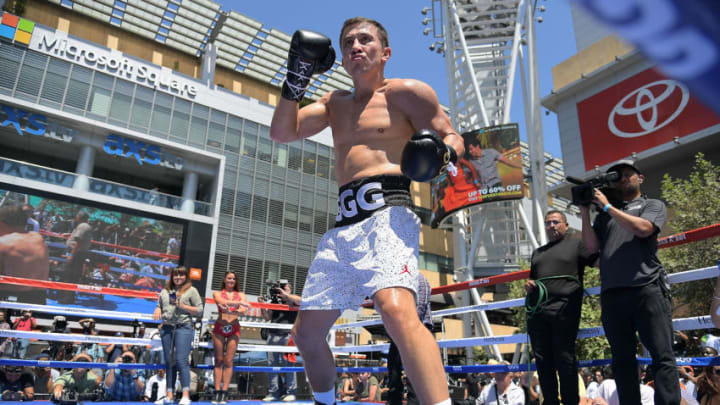19. Golovkin lost the middleweight final at the 2004 Olympic Games
As mentioned in the previous slide, Gennady Golovkin fell just short of winning gold at the 2004 Olympic Games in Athens, Greece. In the finals, Golovkin dropped a 28-18 decision to Russian Gaydarbek Gaydarbekov, who had notably defeated former middleweight title-holder Hassan N’Dam on his way to the the gold medal match.
For Gaydarbekov, the win marked the culmination of a sensational amateur career that had seen him claim silver at the 2000 Games in Sydney, Australia. Prior to Cuban Jorge Gutierrez upending Gaydarbekov on that occasion, the Russian had run roughshod over American Jeff Lacy (RSCO 3), who later held a super middleweight belt, and Hungarian Zsolt Erdei, who annexed the WBO light heavyweight title to the tune of 11 successful defenses before snagging a cruiserweight strap.
As is sometimes the case with elite European amateurs, Gaydarbekov never turned professional. While there are certainly famous cases of Olympic champions failing to translate their success to the paid ranks — Muhammadqodir Abdullaev quickly comes to mind — one has to wonder how Gaydarkbekov might have fared with the right promotional backing.
The Abdullaev example is apt in that it sheds light on another intriguing trend: those who lose early or before the medal rounds at the Olympics are often the most tantalizing pro prospects. Miguel Cotto, who stopped Abdullaev in 2005 to defend his WBO super lightweight title after losing to him in the round of 16 at the 2000 Olympics, is a perfect example of that. Gennady Golovkin, however, fits into a compelling middle ground: the major-tournament-winning amateur who transitioned to the pro ranks after consecutive disappointments and went on to dominate.
